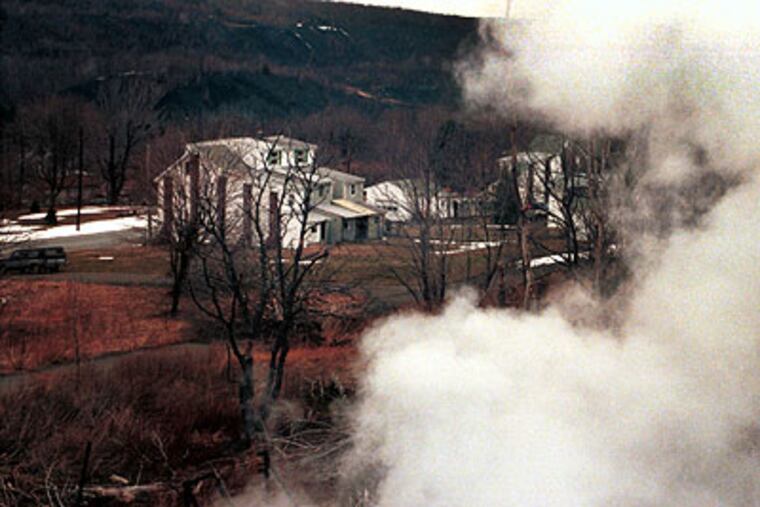Gas drilling's grim precedent
By Steven Conn A member of Gov. Corbett's cabinet was recently quoted as saying that natural-gas drilling will "solve just about every economic problem we have." And that is only the latest such statement from the administration of a man who has been an unapologetic booster of drilling in the Marcellus Shale.

By Steven Conn
A member of Gov. Corbett's cabinet was recently quoted as saying that natural-gas drilling will "solve just about every economic problem we have." And that is only the latest such statement from the administration of a man who has been an unapologetic booster of drilling in the Marcellus Shale.
Whether or not the governor really has a grasp of the state's economic problems, this starry-eyed exaggeration reveals that his team doesn't understand much about the state's history, or the history of economies based on the extraction of natural resources.
For a lesson in all this, the governor would only need travel to the northeastern part of the state and the heart of its last natural-resource bonanza. If you want to see what a future based on natural-gas drilling might look like, take a look at the coal region.
Anthracite coal, hard and hot-burning, fueled the industrial age, and roughly 75 percent of the nation's anthracite coal lay under seven counties in northeastern Pennsylvania.
It seemed too good to be true. And it was.
Mining of the coal started in the first half of the 19th century, but the heyday of the coal industry came after the Civil War and lasted into the 1960s. Millions upon millions of tons of coal came out of those mines, and it made a few people millions and millions of dollars.
It didn't do much, however, for the miners who dug it out, or for the communities that sat on top of the coal seams. By the time the mines had played out, approximately 31,000 miners had been killed doing their jobs. And there's no telling how many were maimed or seriously disabled.
As hard as mining was for miners and their families, it was even harder on the environment of the region. All that coal left even greater quantities of slag, which was simply left in great piles. Mining also led to deforestation and erosion, and it fouled the region's waterways. The underground fire that started in an abandoned mine under Centralia in the early 1960s is still burning; Centralia itself is now a ghost town.
Travel through the old coal country today, and it's not hard to see the effects of this environmental devastation more than a generation after the mines closed. Nor is it hard to see that coal mining left little in the way of prosperity. The region is dotted with ailing towns with increasingly elderly populations and filled with pockets of severe poverty.
The mine owners took their money and ran. They invested little in the towns or the people who made them rich. Nor did they invest in diversifying the region's economy so that it would be more sustainable. After all, those big companies weren't based in the area, and few of their shareholders or board members lived there.
It's a classic example of how a region rich in a natural resource can wind up poor in almost every other way. Once the resource has been thoroughly exploited, the money, the jobs, and the people leave.
Economies based on natural-resource extraction have rarely proved healthy in the long run. Rather, again and again, they have exhibited a pattern of short-term boom followed by long-term bust.
In the Marcellus Shale region, meanwhile, one suspects that the great gas giveaway will follow a similar trajectory: The gas will make a handful of companies, and everyone associated with them, very rich. It will provide some number of jobs for those who drill for the gas. And it will also provide a boost to state revenues, though not nearly as much as it could.
But drilling in the Marcellus Shale will also cause considerable environmental damage - some of which we can already predict, and some of which we won't even know about for years. By that time, of course, the gas companies will have left, sticking taxpayers with the cleanup bills. That's the way it's gone in the coal region.
Left behind will be a series of small towns and rural communities whose social fabric will be devastated, along with their drinking water, their forests, and their fields. Then those who remain once the rigs are gone will measure the emptiness of all the promises that were made to them.
If the history of coal country is any indication, gas drilling - far from rescuing Pennsylvania's economy - will only create a whole new set of problems.